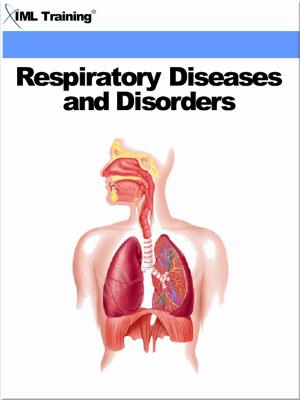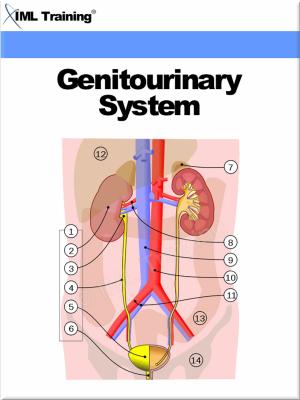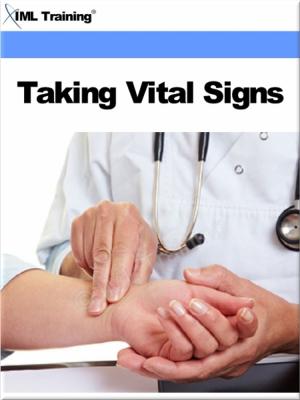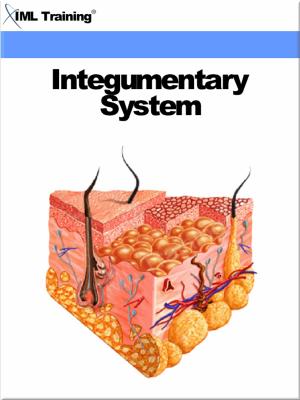Pharmacology Volume 3
Includes Respiratory System, The Human Cardiovascular, Lymphatic, Urogenital Systems, Cardiac, Vasodilator Drugs, Hematopoietic System, Antihypertensive, Diuretic, Anti-diuretic Agents, Toxicology, and Poison Control
Nonfiction, Health & Well Being, Medical, Medical Science, Pharmacology| Author: | ISBN: | 9781782581994 | |
| Publisher: | IML Training | Publication: | January 21, 2013 |
| Imprint: | IML Training | Language: | English |
| Author: | |
| ISBN: | 9781782581994 |
| Publisher: | IML Training |
| Publication: | January 21, 2013 |
| Imprint: | IML Training |
| Language: | English |
Pharmacology Volume 3 of 5
Drugs that act upon the respiratory system, cardiovascular system, or urinary system are frequently dispensed in pharmacies. This is because conditions that affect these systems (that is, hypertension affecting the cardiovascular system) affect many people. Consequently, it is imperative that you have an understanding of these systems and the drugs that act on them.
As with Pharmacology Volume 1, and Pharmacology Volume 2, anatomy, physiology, and pharmacology are presented in a combined perspective in this course. This is done in order to help you to understand and remember the actions, uses, side effects, and patient warnings associated with the drugs included in the lessons.
This course is part of our Pharmacology series.
Includes a questions and answers section at the end of each lesson.
Full illustrations and diagrams included.
Lessons:
- Respiratory System and Respiratory System Drugs
- The Human Cardiovascular and Lymphatic Systems
- Cardiac Drugs
- Vasodilator Drugs
- Drugs Acting on the Hematopoietic System
- The Human Urogenital Systems
- Antihypertensive Agents
- Diuretic and Antidiuretic Agents
- Toxicology and Poison Control
Drugs that act upon the respiratory system, cardiovascular system, or urinary system are frequently dispensed in pharmacies. This is because conditions that affect these systems (that is, hypertension affecting the cardiovascular system) affect many people. Consequently, it is imperative that you have an understanding of these systems and the drugs that act on them.
As with Pharmacology Volume 1, and Pharmacology Volume 2, anatomy, physiology, and pharmacology are presented in a combined perspective in this course. This is done in order to help you to understand and remember the actions, uses, side effects, and patient warnings associated with the drugs included in the lessons.
This course is part of our Pharmacology series.
Includes a questions and answers section at the end of each lesson.
Full illustrations and diagrams included.
Lessons:
- Respiratory System and Respiratory System Drugs
- The Human Cardiovascular and Lymphatic Systems
- Cardiac Drugs
- Vasodilator Drugs
- Drugs Acting on the Hematopoietic System
- The Human Urogenital Systems
- Antihypertensive Agents
- Diuretic and Antidiuretic Agents
- Toxicology and Poison Control
Pharmacology Volume 3 of 5
Drugs that act upon the respiratory system, cardiovascular system, or urinary system are frequently dispensed in pharmacies. This is because conditions that affect these systems (that is, hypertension affecting the cardiovascular system) affect many people. Consequently, it is imperative that you have an understanding of these systems and the drugs that act on them.
As with Pharmacology Volume 1, and Pharmacology Volume 2, anatomy, physiology, and pharmacology are presented in a combined perspective in this course. This is done in order to help you to understand and remember the actions, uses, side effects, and patient warnings associated with the drugs included in the lessons.
This course is part of our Pharmacology series.
Includes a questions and answers section at the end of each lesson.
Full illustrations and diagrams included.
Lessons:
- Respiratory System and Respiratory System Drugs
- The Human Cardiovascular and Lymphatic Systems
- Cardiac Drugs
- Vasodilator Drugs
- Drugs Acting on the Hematopoietic System
- The Human Urogenital Systems
- Antihypertensive Agents
- Diuretic and Antidiuretic Agents
- Toxicology and Poison Control
Drugs that act upon the respiratory system, cardiovascular system, or urinary system are frequently dispensed in pharmacies. This is because conditions that affect these systems (that is, hypertension affecting the cardiovascular system) affect many people. Consequently, it is imperative that you have an understanding of these systems and the drugs that act on them.
As with Pharmacology Volume 1, and Pharmacology Volume 2, anatomy, physiology, and pharmacology are presented in a combined perspective in this course. This is done in order to help you to understand and remember the actions, uses, side effects, and patient warnings associated with the drugs included in the lessons.
This course is part of our Pharmacology series.
Includes a questions and answers section at the end of each lesson.
Full illustrations and diagrams included.
Lessons:
- Respiratory System and Respiratory System Drugs
- The Human Cardiovascular and Lymphatic Systems
- Cardiac Drugs
- Vasodilator Drugs
- Drugs Acting on the Hematopoietic System
- The Human Urogenital Systems
- Antihypertensive Agents
- Diuretic and Antidiuretic Agents
- Toxicology and Poison Control















